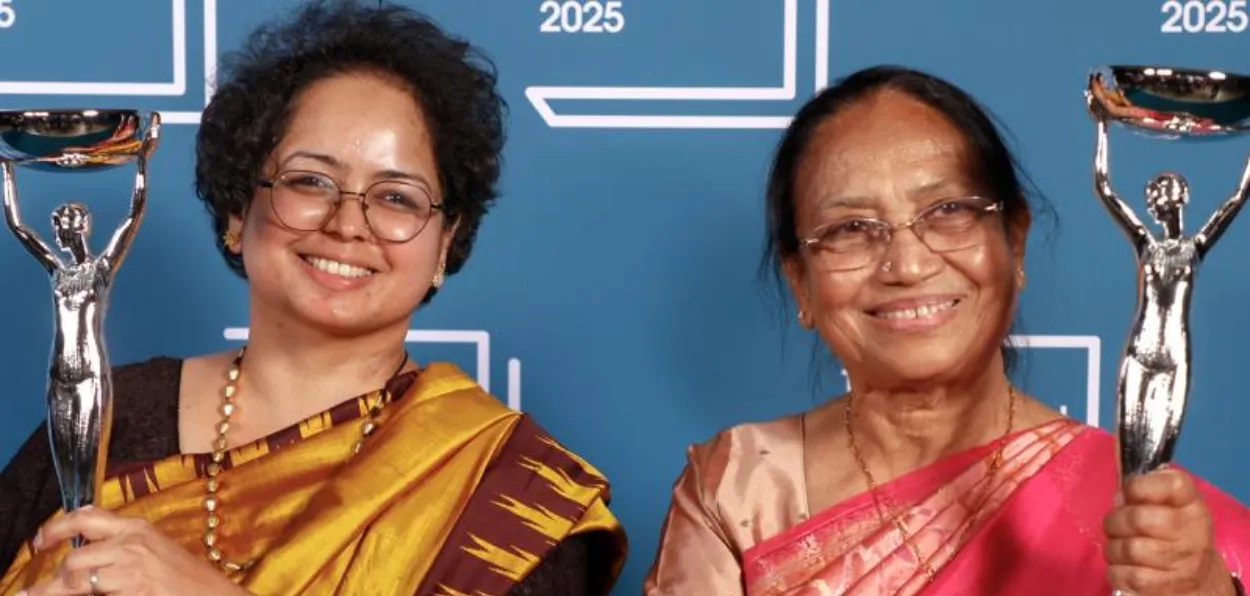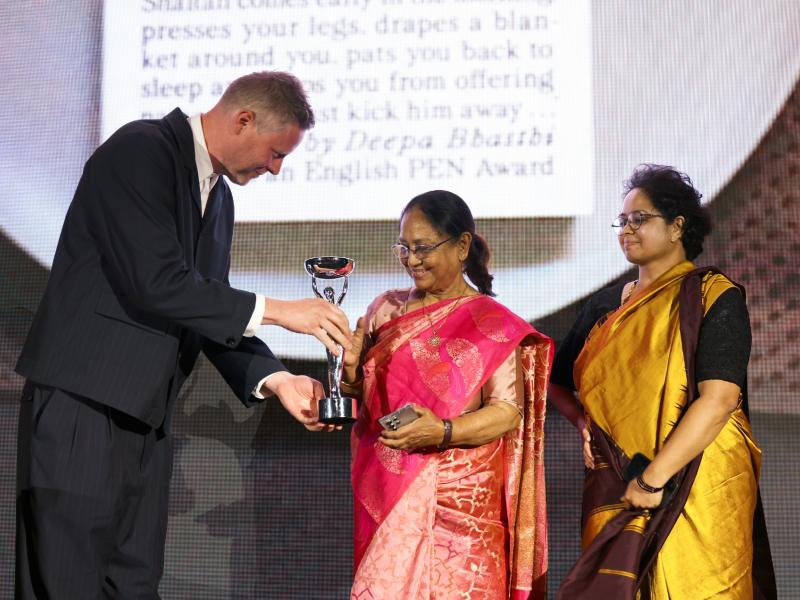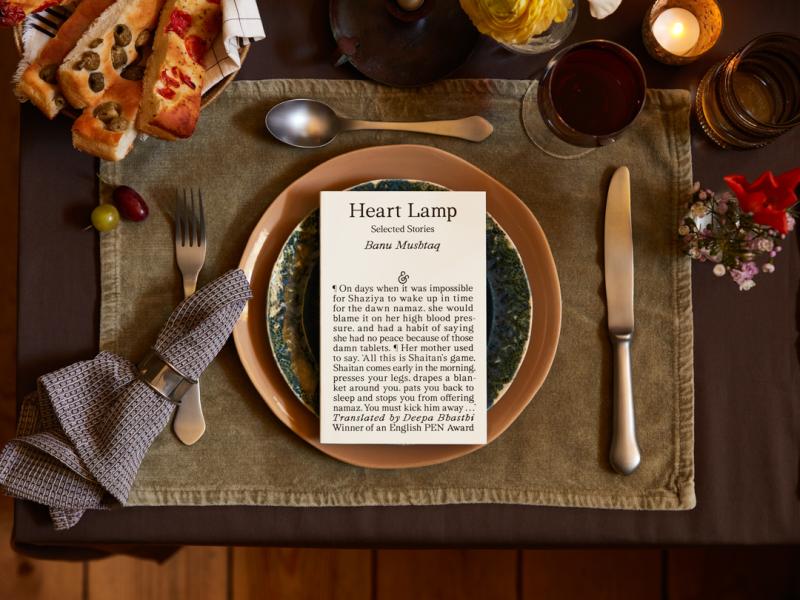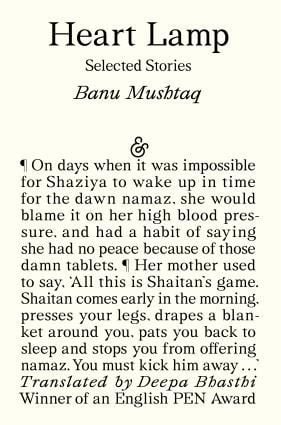
Aasha Khosa/New Delhi
"My stories are about women – how religion, society, and politics demand unquestioning obedience from them, and in doing so, inflict inhumane cruelty upon them, turning them into mere subordinates. The daily incidents reported in the media and the personal experiences I have endured have been my inspiration. The pain, suffering, and helplessness of these women create a deep emotional response within me. I do not engage in extensive research; my heart itself is my field of study."
This is how Banu Mushtaq, the Kannada author and lawyer, wrote about her book Heart Lamp while filing her nomination for the coveted International Booker Prize 2025.
Not known to many is the fact that Banu Mushtaq too suffered the curtailment of freedoms that many women, especially in Muslim communities, continue to go through. Though she went to the university and married a man of her choice, life wasn't as rosy as she thought it would be for an educated and emancipated woman.
After marrying at 26, she was shocked to find that she was expected to be just a homemaker confined to the four walls of her home and cover herself up.
She told The Vogue Magazine that she joined university when most other Muslim women were tying the knot in their teens. She also became a reporter for the award-winning vernacular paper Lankesh Patrike, an activist in several protest literary circles including Bandaya Sahitya, and eventually an advocate. She was also elected twice to the municipal council.
 Banu and Deepa receiving the Prize from Max Porter, Chair of the International Booker Prize 2025 judges
Banu and Deepa receiving the Prize from Max Porter, Chair of the International Booker Prize 2025 judges
She told The Vogue, “I had always wanted to write but had nothing to write because suddenly, after a love marriage, I was told to wear a burqa and dedicate myself to domestic work. I became a mother suffering from postpartum depression at 29.”
The Booker Prize winner told The Week Magazine she contemplated ending her life and poured kerosene over her body. As she was about to light a matchstick, her husband arrived at the scene.
"Thankfully, he [the husband] sensed it in time, hugged me, and took away the matchbox. He pleaded with me, placing our baby at my feet, saying, 'Don't abandon us'."
Heart Lamp by Banu Mushtaq translated from Kannada by Deepa Bhasthi, is the 2025 winner of the International Booker Prize, the world’s most influential award for translated fiction. It’s also the first collection of short stories to be awarded the prize, announced by bestselling Booker Prize-longlisted author Max Porter at London’s Tate Modern on Tuesday, 20 May.
In a collection of 12 short stories, Heart Lamp chronicles the everyday lives of women and girls in patriarchal communities in southern India.
 The Book Heart Lamp
The Book Heart Lamp
The International Booker Prize website says 'It recognises the vital work of translation, with the £50,000 (INR 57.59 lakh) prize money" divided equally between the author and the translator.
Written between 1990 and 2023, Heart Lamp’s 12 stories chronicle the lives of women and girls in patriarchal communities in southern India. Mushtaq, a lawyer and major voice within progressive Kannada literature, is a prominent champion of women’s rights and a protester against caste and religious oppression in India and was inspired to write the stories by the experiences of women who came to her seeking help.

Heart Lamp is the first book translated from Kannada, a language spoken by an estimated 65 million people, to be nominated for the prize. Deepa Bhasthi becomes the first Indian translator to win the International Booker.
Max Porter, Chair of the International Booker Prize 2025 judges, said, ‘Heart Lamp is something genuinely new for English readers. A radical translation which ruffles language; to create new textures in a plurality of Englishes. It challenges and expands our understanding of translation. ..These beautiful, busy, life-affirming stories rise from Kannada, interspersed with the extraordinary socio-political richness of other languages and dialects. It speaks of women’s lives, reproductive rights, faith, caste, power, and oppression.
"This was the book the judges really loved, right from our first reading. It’s been a joy to listen to the evolving appreciation of these stories from the different perspectives of the jury.”Originally published in the Kannada language between 1990 and 2023, Banu Mushtaq’s portraits of family and community tensions testify to her years tirelessly championing women’s rights and protesting all forms of caste and religious oppression."
According to the International Booker Prize website, “Mushtaq’s writing is at once witty, vivid, moving and excoriating, building disconcerting emotional heights out of a rich spoken style. It’s in her characters – the sparky children, the audacious grandmothers, the buffoonish maulvis and thug brothers, the oft-hapless husbands, and the mothers above all, surviving their feelings at great cost – that she emerges as an astonishing writer and observer of human nature.”
Banu Mushtaq is the author of six short-story collections, a novel, an essay collection, and a poetry collection. She has won major awards for her literary works, including the Karnataka Sahitya Academy and the Daana Chintamani Attimabbe awards.
READ MORE: Captain Sayria Abbasi: Breaking barriers, defending borders
Bhasthi’s translation of Banu Mushtaq’s stories was a winner of English PEN’s ‘PEN Translates’ award. She has called her process for Heart Lamp, ‘translating with an accent’, and she became the first Indian translator to win the International Booker Prize.
Deepa said, “The book that changed the way I think about the world."
